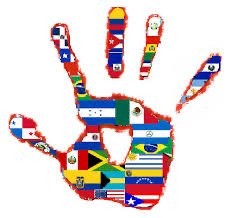Best practices for trainers (Part 2)
by Niina Halvorsen

In the previous article about best practices for trainers, the focus was on the migrants’ backgrounds. Now, it is time to call attention to another element: Cultural Differences
Grow your cultural awareness and competences
Teachers/trainers should grow their cultural awareness and become conscious of their own culturally shaped values, beliefs, perceptions, and biases. They should learn to observe their own reactions to people whose cultures differ from their own and reflect upon those responses. Becoming culturally competent means that you are learning about different cultures, you are interacting with diverse groups of people, and you attend diversity-focused seminars and conferences.
Be culturally responsive
Cultural responsiveness in teaching/training is more of a process than a strategy. It begins when a teacher/trainer recognises the cultural capital and tools that migrant students bring to the classroom. They are then able to respond to students’ use of these cultural learning tools positively by noticing, naming, and affirming them when students use them in learning. The most common cultural tools for processing information utilise the brain’s memory systems — music, repetition, metaphor, recitation, physical manipulation of content, and ritual. The teacher/trainer is ‘responsive’ when they are able to mirror these ways of learning in their instructions, using similar strategies to scaffold learning.
Understand cultural values and learning practices
Cultural values and learning practices transmitted from our parents and community guide how the brain wires itself to process information and handle relationships. Neural pathways are over-developed around one’s cultural ways of learning. Culturally responsive teachers/trainers know this and piggyback on these well-developed neural pathways with similar types of instruction. Tapping into these neural pathways can help students accelerate their own learning.
Understand cultural dimensions of communalism
Teachers/trainers need to understand the cultural dimensions of communalism – most communities have this cultural trait in common, namely a focus on the interdependence of the group. It can be summed up in the African proverb, ‘I am because we are.’ This way of being is contrasted with our dominant culture’s more individualist, pull-yourself-up-by-your-bootstraps worldview.



